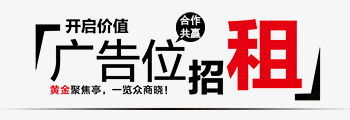Supporting Indigenous self-determination through collective memory
President, PM urge global action on Kashmiris' right to self-determination
The next theme relates that community – meaning the groups with which individuals are connected and hold shared beliefs – is an important partner in health decision making. We found the included studies to identify a role for community as a source of knowledge and support in shared decision making. The strengths and relevance of the included studies with knowledge organizing systems and team governance are reported in Table 4. We reflected on the strengths and relevance of the included studies to determine the contributions to shared decision making and Indigenous self-determination 64, 65.
This is likely due to multiple factors, including variable ICCO access to technology, geography (e.g., remote/rural communities), emergent flooding, and COVID-19 (e.g., community lockdowns, no events). Taking the time to meet someone “face-to-face”, either virtually via Zoom or by attending community health events, is an important aspect of relationality and building trust. We have heard from ICCO representatives that this relational communication has helped with anxiety about research and made them feel supported in the research process. The biggest challenges to developing and continuing relational research are the budget and resources, especially given the conventional timelines of research activities. For the BC NEIHR, reaching and connecting with ICCOs in the North has been particularly difficult given the cost of travel to and from the North. Future health research proposals and budgets must acknowledge that building research relationships with ICCOs requires in-person interactions and relationality, and that these are crucial to trusting, meaningful, respectful, and engaging relationships in the research environment as well as to ICCO self-determination.
.jpeg)
Associated Data
.jpeg)
The BC NEIHR regularly requests feedback from ICCO applicants about the process of applying for BC NEIHR funding, including whether the application form and instructions were easy to understand. While the majority of ICCOs raised no concerns, a few found the instructions difficult to understand. To help address the barriers around language that is accessible and relevant for ICCOs when applying for health research funding, we developed a series of materials to support ICCOs in their The Coalition to Dismantle the Doctrine of Discovery applications for BC NEIHR funding. These included a written workbook containing very clear examples/templates for each step of the application process and video-based nano-tutorials (i.e., videos that are 60–90 s long) for each step of the process. For funded projects, a 10% holdback is released upon receipt at the end of a grant period of a final report which summarizes the processes and outcomes of the project.
Share this article
In contrast, we found the Indigenous-oriented studies sought to change health systems by supporting Indigenous Peoples to participate in their health decision making. The six studies in the Indigenous-oriented cluster describe processes to develop and evaluate 46, 72, 73, 75 or to develop and implement 70, 77 shared decision making interventions intended for use within Western-oriented health care systems. For example, a study to determine the acceptability to Aboriginal children of a culturally appropriate tool that facilitates the voices of Aboriginal children and young people in care by supporting professionals to ask good questions and listen. The study identifies the importance of “providing spaces for children and young people to engage requires consideration of the conditions in which they might be comfortable to participate” 72. Another study describes the development of a stakeholder driven decision support tool to address the issues that included lack of patient preparation to participate with health care providers, and recommendations from health care providers that “…were not in line with patient values and preferences.” 70.
Not Deciding Alone Team
Our perspective centres on the need to align Indigenous Peoples as equal partners within health systems, and to support opportunities for participation in health decisions. To ensure transparency and completeness in our work, we used the Enhancing Transparency in Reporting the Synthesis in Qualitative Research (ENTREQ) 40 (Supplementary file 1) and the Preferred Reporting Items for Systematic Reviews and Meta-Analysis statement extended for equity (PRISMA-Equity) 41 (Supplementary file 2). We conducted our research to align with the views expressed by Inuit in community consultations, and with a focus on a principled approach to research 35, 42. The principles of Inuit Qaujimajatuqangit guide a strengths-based approach to research and promotes Inuit self-determination and self-reliance. Inuit Qaujimajatuqanigit centre on collaborative decision making and working together for the common good 43, 44.









Supporting Indigenous self-determination through collective memory:等您坐沙发呢!